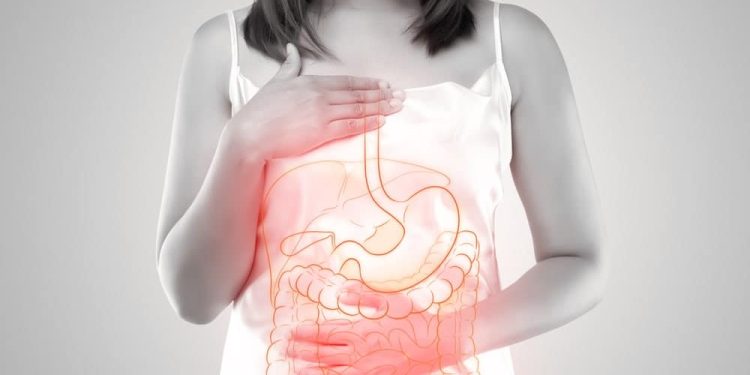Gastrointestinal (GI) diseases encompass a wide range of conditions that affect the digestive tract, including the esophagus, stomach, intestines, liver, gallbladder, and pancreas. These conditions range from mild issues like indigestion and acid reflux to more serious diseases like Crohn’s disease, ulcerative colitis, and colorectal cancer. While some gastrointestinal diseases can be cured, others require long-term management. With advances in medical science, significant progress has been made in both treating and managing GI diseases, offering hope and relief to millions worldwide.
Understanding Gastrointestinal Disease
Gastrointestinal diseases can be divided into two main categories:
- Functional GI Disorders – These include conditions like Irritable Bowel Syndrome (IBS), where the GI tract appears normal but doesn’t function properly.
- Structural GI Disorders – These involve visible abnormalities in the GI tract, such as ulcers, polyps, or tumors.
Common symptoms include abdominal pain, bloating, constipation, diarrhea, heartburn, and nausea. If left untreated, some GI diseases can lead to complications such as malnutrition, intestinal blockages, and increased cancer risk.
Is There a “Cure”?
The term “cure” depends largely on the specific gastrointestinal condition:
- Curable Conditions: Some infections (like H. pylori, a common cause of ulcers), certain types of ulcers, and mild acid reflux can often be cured with proper treatment.
- Manageable but Not Curable: Chronic diseases like Crohn’s disease, ulcerative colitis, and IBS currently have no permanent cure, but can be effectively managed with medication, diet, and lifestyle changes.
- Surgical Interventions: In some cases, surgery can offer a definitive solution, such as removing cancerous growths, repairing hernias, or removing parts of the bowel affected by chronic disease.
Modern Treatments for GI Diseases
- Medications
Pharmaceutical advancements have revolutionized GI disease management. Common treatments include:
- Proton Pump Inhibitors (PPIs): Used for acid reflux and ulcers by reducing stomach acid production.
- Antibiotics: For bacterial infections like Helicobacter pylori.
- Anti-inflammatory Drugs: Such as corticosteroids and 5-ASA compounds for IBD.
- Immunosuppressants: Used in severe Crohn’s disease or ulcerative colitis to reduce immune system activity.
- Biologic Therapies: Targeted treatments (like TNF inhibitors) that address specific pathways in autoimmune GI diseases.
Biologics have shown tremendous promise in treating chronic GI disorders by reducing inflammation and maintaining long-term remission.
- Dietary Therapy
Diet plays a central role in both causing and treating many GI diseases. Some therapeutic approaches include:
- Low FODMAP Diet: Reduces fermentable carbs to relieve IBS symptoms.
- Gluten-Free Diet: Essential for managing celiac disease.
- Specific Carbohydrate Diet (SCD): Sometimes recommended for Crohn’s and ulcerative colitis.
- High-Fiber Diet: Beneficial for constipation and diverticulosis.
For some conditions, especially mild GI disturbances, diet modifications alone can significantly reduce symptoms or even lead to full recovery.
- Probiotics and Gut Microbiome Therapy
The gut microbiome has become a key focus in GI research. Probiotics—live beneficial bacteria—are often used to restore balance to the digestive system.
New treatments like fecal microbiota transplantation (FMT) have shown promise in treating conditions such as Clostridioides difficile infection and potentially other chronic inflammatory bowel diseases by restoring healthy gut flora.
- Surgery
Surgical procedures are sometimes necessary for structural diseases or when medications fail. Common surgeries include:
- Resection of affected bowel segments (e.g., in Crohn’s disease)
- Removal of tumors or polyps
- Gastroesophageal reflux surgery (fundoplication)
- Gallbladder removal (cholecystectomy) for gallstone-related issues
In certain cancers and advanced inflammatory diseases, surgery can be life-saving and curative.
- Lifestyle Modifications
Beyond medical and surgical treatments, lifestyle changes can significantly improve digestive health:
- Stress Management: Chronic stress worsens many GI conditions, especially IBS.
- Regular Exercise: Helps regulate bowel movements and reduce inflammation.
- Adequate Hydration: Essential for preventing constipation and maintaining overall gut function.
- Avoiding Triggers: Caffeine, alcohol, spicy foods, and certain medications can worsen symptoms.
Promising Future Therapies
Medical research continues to explore new frontiers in treating GI diseases:
- Gene Therapy: Potential future cures for genetic GI disorders.
- Stem Cell Therapy: Being investigated for regenerating damaged intestinal tissue.
- Artificial Intelligence (AI): Assisting in early diagnosis and personalized treatment plans.
- Microbiome-Based Therapies: Developing targeted ways to reshape the gut ecosystem for lasting relief.
Conclusion
The key to success is early diagnosis, personalized treatment, and a proactive approach to digestive health. As research continues and therapies evolve, the future of curing—or significantly reducing the impact of—gastrointestinal diseases looks increasingly promising.
For more information click here Cure for gastrointestinal disease.




























































